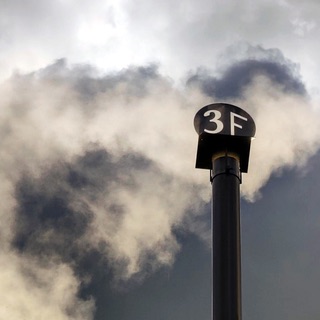Podcast: Play in new window | Download (Duration: 25:28 — 24.5MB)
Subscribe: Google Podcasts | Spotify | Android | RSS | More
 Since 1966, the European Union has had the most restrictive laws in the world on agricultural biodiversity. To be marketed, a variety has to be distinct, uniform and stable, which in principle means the individual plants have to be effectively identical. This has never suited organic farmers or any other smaller scale growers, including home gardeners. Finally, after a few false starts, a new regulation permitted the marketing of “organic heterogeneous material” from January 2022.
Since 1966, the European Union has had the most restrictive laws in the world on agricultural biodiversity. To be marketed, a variety has to be distinct, uniform and stable, which in principle means the individual plants have to be effectively identical. This has never suited organic farmers or any other smaller scale growers, including home gardeners. Finally, after a few false starts, a new regulation permitted the marketing of “organic heterogeneous material” from January 2022.
One of the organisations that campaigned for the new regulation is Let’s Liberate Diversity, an association of European groups. I went along to their 10th anniversary forum to hear how farmers and food producers were responding to the new regulation.
Notes
- Find out more about Brouwerij 3 Fonteinen and Biocivam Aude.
- Let’s Liberate Diversity published a round-up of all the events at the Budapest forum.
- The farmers Yumi Biagini is working with are looking for varieties from climate analogues, places that currently experience the kind of climate that they expect in the future. There used to be a marvellously easy tool to find climate analogues, but it seems to have vanished without trace. Best I can find is this explanation from Oregon State University.
- Rouge de Bordeaux photograph from Moulin du Courneau on Instagram. 3F image from Drie Fonteinen.
- Here is the transcript.


From the transcript, how @3fonteinen and the farmers it works with are making use of their freedom to use agricultural biodiversity to improve their beer and their self-esteem eatthispodcast.com/budapest-ohm/
From the transcript, how @3fonteinen and the farmers it works with are making use of their freedom to use agricultural biodiversity to improve their beer and their self-esteem eatthispodcast.com/budapest-ohm/
Latest episode: @3Fonteinen and local farmers sharing the risks and profits of making unique beers to build a resilient local grain system. @ECLLD eatthispodcast.com/budapest-ohm
Latest episode: @3Fonteinen and local farmers sharing the risks and profits of making unique beers to build a resilient local grain system. @ECLLD eatthispodcast.com/budapest-ohm
Latest episode: @3Fonteinen and local farmers sharing the risks and profits of making unique beers to build a resilient local grain system. @ECLLD eatthispodcast.com/budapest-ohm
The online @CGIARclimate #climate #analogues tool is no longer maintained, but a fully operational R package is available here 👉 github.com/CIAT-DAPA/anal…
A recent tutorial with scripts 👉 rpubs.com/sergiocastropa…
Many thanks to @eat for actively participating in the forum and for making such a good spread!
Let’s move forward to bring practices, and not just publications, for #goodfarming and #healthy #food production. 🍻
Latest episode: @3Fonteinen and local farmers sharing the risks and profits of making unique beers to build a resilient local grain system. @ECLLD eatthispodcast.com/budapest-ohm
Latest episode: @3Fonteinen and local farmers sharing the risks and profits of making unique beers to build a resilient local grain system. @ECLLD eatthispodcast.com/budapest-ohm
Latest episode: @3Fonteinen and local farmers sharing the risks and profits of making unique beers to build a resilient local grain system. @ECLLD eatthispodcast.com/budapest-ohm
I hit “publish” too soon yesterday. If I had waited a couple of hours, I could have done a deeper dive into how Jeremy spent his holidays, by adding his just-dropped podcast on the “Let’s Liberate Diversity” Forum held in Budapest back in October to his last newsletter of 2022.
In the podcast, Jeremy muses on the new EU Organic Regulation (Regulation (EU) 2018/848), which finally allows the marketing of organic heterogeneous material (OHM) and interviews two beneficiaries of the change in the law. Spoiler alert: Belgian beer is being re-Belgianized, and everybody seems very happy about it.
Incidentally, if you’re interested in doing the kind of climate matching Jeremy mentions in his third note, you could check out this website, though it only covers Europe. If you want global coverage, you might have to brush up on your R.
Great, thanks!